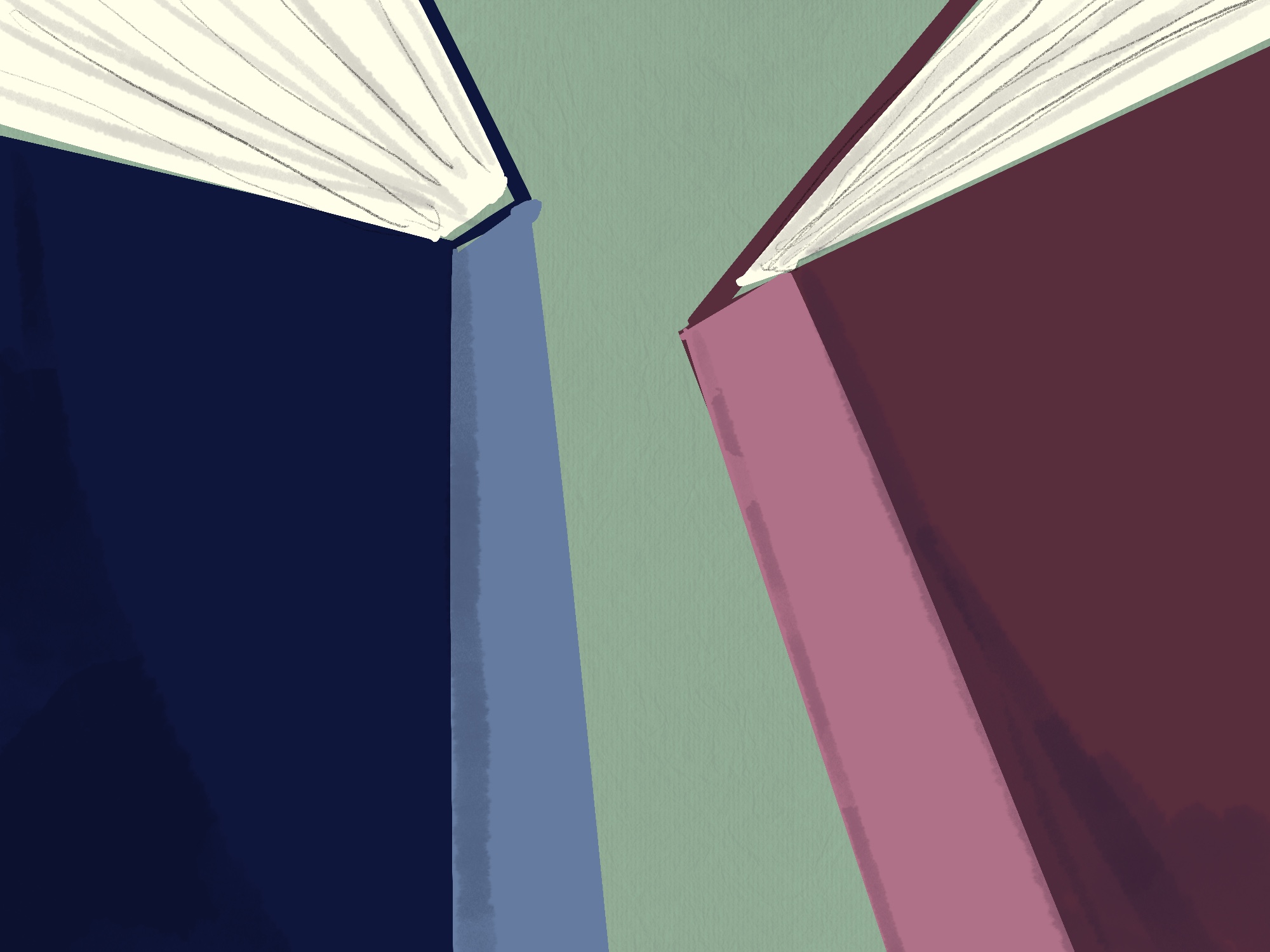From the time I started reading seriously, about three years ago, I’ve been exploring different genres. Interestingly enough, it seems that the lengthy classics are the books I enjoy the most — and I wish more people did too. While I do love a good Russian classic, and would highly encourage anyone to read Tolstoy or Dostoyevsky, I don’t think even their easiest works could be categorized as “beginner-friendly.” You could start with any of the classics, really, but if you choose the most wordy novel written in Old English, you might find yourself never wanting to pick one up again. To make your journey into the world of classics a little smoother, here are five timeless books that I think are perfect to start your journey off with.

“Little Women” by Louisa May Alcott
By far the easiest classic to read, “Little Women” is a comforting and timeless piece that captures the trials, triumphs and growing pains of the four March sisters. Alcott’s portrayal of girlhood is relatable and heartwarming, with each sister representing different paths, dreams and struggles. When you’re done reading, you will surely be left reflecting on whether you’re a Jo, Amy, Beth or Meg. The story is simple, yet profound, offering lessons about family, love and personal growth that are still relevant today. Its accessible language and relatable themes make it an ideal starting point for anyone new to the classics.
“Atonement” by Ian McEwan
Although not a traditional classic in the sense of being centuries old, “Atonement” has earned its place among modern classics for its rich storytelling and complex characters. This novel explores themes of love, guilt and the consequences of one’s actions. It’s a gripping story that begins with a young girl’s misunderstanding and grows into a sweeping tale of loss and redemption. McEwan’s writing is elegant and accessible, making it a great introduction to more serious literature without the archaic language of older classics. “Atonement” is a good pick if you want to shed a few tears. I also highly recommend the movie adaptation!
“Madame Bovary” by Gustave Flaubert
Ahhh, Emma Bovary, they could never make me hate you. Out of the 100+ books I’ve read, “Madame Bovary” remains my ultimate favorite — and I could talk about it for hours. If you’re into the hysteric, but relatable female lead trope, you might enjoy this one as much as I do. Emma Bovary is a deeply flawed, complex character trapped in the mundanity of provincial life, seeking out romance and excitement in all the wrong places. Flaubert’s writing is vivid and emotional, making it easy to fall into Emma’s world. Despite her mistakes, Emma’s yearning for something more feels incredibly human and relatable. For anyone who loves a compelling, character-driven story, “Madame Bovary” is a must-read.
“1984” by George Orwell
Orwell’s “1984” may not seem like an obvious choice for beginners, but it’s incredibly captivating and readable. “1984” is far from my usual literary theme preference, yet it still managed to earn five stars on my Goodreads. Set in a dystopian future, “1984” explores themes of surveillance, totalitarianism and the power of language. Orwell’s clear prose and suspenseful plot make this an addictive novel that’s hard to put down. It’s a thought-provoking read that’s still relevant today, and also a great introduction to more philosophical and political books.
“The Woman Destroyed” by Simone de Beauvoir
Simone de Beauvoir’s “The Woman Destroyed” is a fascinating dive into the emotional roller coaster that is the midlife crisis. I can guarantee that I will be reading it again in 20 years when I will be more likely to relate to it. This collection of three stories gives you a glimpse into the lives of women dealing with everything from betrayal to the existential dread of aging. Although the themes are serious, Beauvoir’s sharp and engaging writing makes it easy to get lost in the drama. If you’re curious about literary feminism, this is the book for you.
Remember, classics don’t have to be a pain — they’re not only about describing 19th-century wallpaper. They can also be dramatic, sassy and full of romance. So, start with my suggestions, and soon you’ll be the person who casually discusses Emma Bovary’s questionable life choices at dinner parties. I promise it’s fun!





















































































































Edward J. Cunningham • Sep 20, 2024 at 6:53 pm
“The Great Gatsby” by F. Scott Fitzgerald is missing.
Bethany • Sep 19, 2024 at 4:31 am
“Remember, classics don’t have to be a pain — they’re not only about describing 19th-century wallpaper.”
Okay, but considering the Yellow Wallpaper, when they are about wallpaper, they’re incredible. ?
Maggie • Sep 19, 2024 at 6:31 pm
You just made me snort, Bethany! Well played.
Coleman Johnson • Sep 18, 2024 at 7:59 pm
Greatly enjoyed this article…makes me want to read some of these books.
Thanks, Coleman Johnson
Sandra • Sep 18, 2024 at 7:00 pm
I would have picked
5 others that outshine these..
BORING is the word and I very seldom use
that horrible description.
Gail • Sep 18, 2024 at 6:09 pm
That’s a great idea for a piece. I liked the choices, too. But I definitely would have added George Orwell’s Animal Farm. I know, two titles by Orwell…
Harry D Bostrom • Sep 18, 2024 at 3:39 pm
1984 is the ONLY classic listed. Everything else is just rubbish crap with no intellectual content.